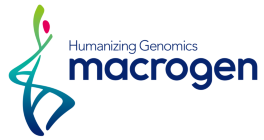“Big data will revolutionize biotechnology and the healthcare industry,” says Jeong-Sun Seo, chairman and founder of Macrogen.
With accredited clinical labs in the USA and Korea, the company plans to become a leader in human genome analysis through R&D into genomic medicine.
Spun off from the Genomic Medicine Institute of the Seoul National University College of Medicine in 1997, Macrogen is now working with more than 18,000 researchers in 153 countries.

A North Asian focus
The whole-genome sequencing of a Korean person by Macrogen geneticists was the first sequencing of a north Asian genome. The company also established the world’s most complete reference for the Asian diploid genome, AK1, overcoming limitations in the standard reference genome. With evidence growing about the critical role played by structural variants in human disease, scientists at Macrogen are now cataloguing large structural variants in populations in north Asia, especially Mongolia, based on long-read sequencing.
Having led the 10,000 Asian Genome Project focused on north Asia since 2009, Macrogen recently took on a central role in the Genome Asia 100K Initiative, a project that will involve sequencing the genomes of 100,000 Asians in 19 countries. A large north Asian cohort study is already starting to reveal the major differences between Asian and European genomes.

A big data revolution
Macrogen wants to be at the vanguard of precision medicine in Asia by implementing big data that integrates genomic information with medical records. “The innovations pursued by Macrogen will ultimately help everyone get the best treatment at an affordable price,” says Seo. The company is developing a patient-care system based on artificial intelligence in collaboration with Seoul National University Bundang Hospital, which has a state-of-the-art electronic medical record system. The patient-care system focuses on common lifestyle-related illnesses, such as obesity, diabetes and sleeping disorders.

Humanizing genomics
Macrogen will make personal genome data readily accessible to authorized users. The company has recently obtained two patents on blockchain technology and is developing O-channels, which will allow users to access their genome data. “Everyone has the right to easily benefit from their genome information,” says Changhoon Kim, Macrogen’s chief technical officer, “Macrogen’s O-channel technology will serve as a platform for this purpose. It is effectively a ‘do-it-yourself’ genome analyzer.” Macrogen’s sharing economy platform empowered by its blockchain technologies and O-channels will allow individuals to safely share their genome information, helping others in need. This will maximize the usefulness of healthcare big data.


